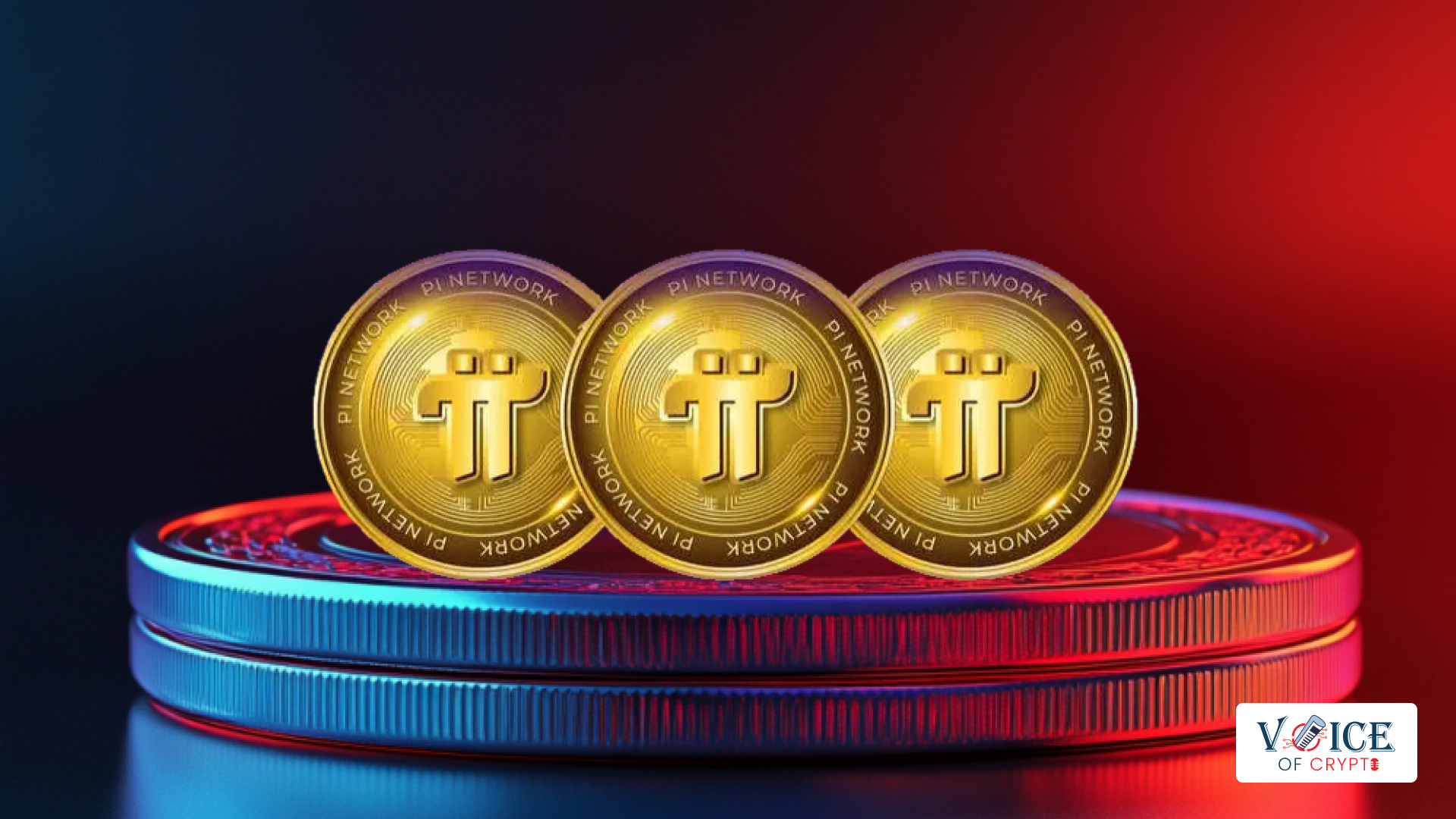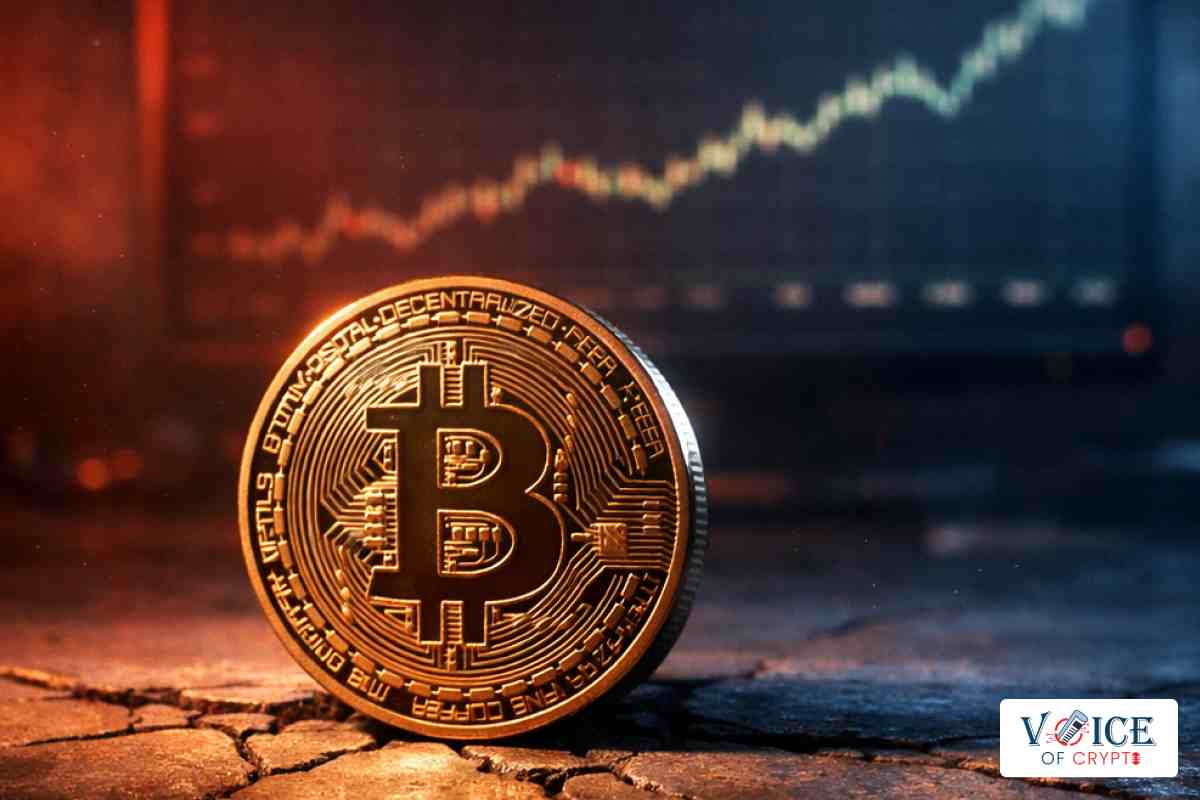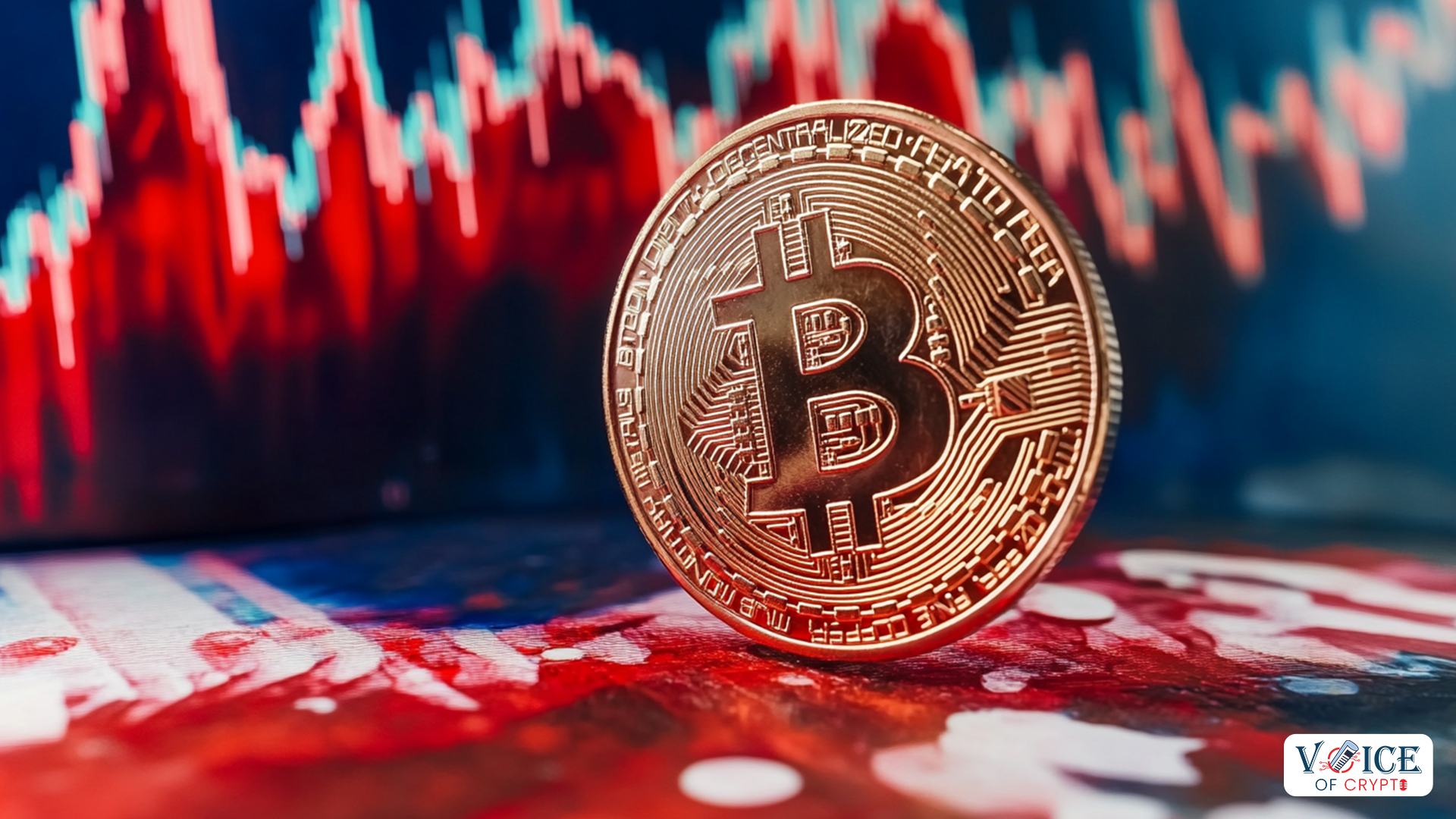Key Insights:
- The Pi Coin has recently touched $3 despite markets facing a downturn.
- Large community support, high user activity, and a stellar debut, worked in favor of it.
- In the future, Pi could become a general-purpose cryptocurrency for everyday needs.
- At press time, Pi has formed a rounded bottom recovery pattern on its charts and could touch $3 soon in Q2 of 2025.
Pi Coin Recent Price Trends Since Launch
Less than a fortnight ago, on 20 Feb 2025, Pi Coin was introduced on the mainnet after 6 long years of waiting since March 2019. The delay in launch prompted many to call it a scam; however, things began to take shape at Pi Network after the four month bullish phase in the crypto markets since October 2025.
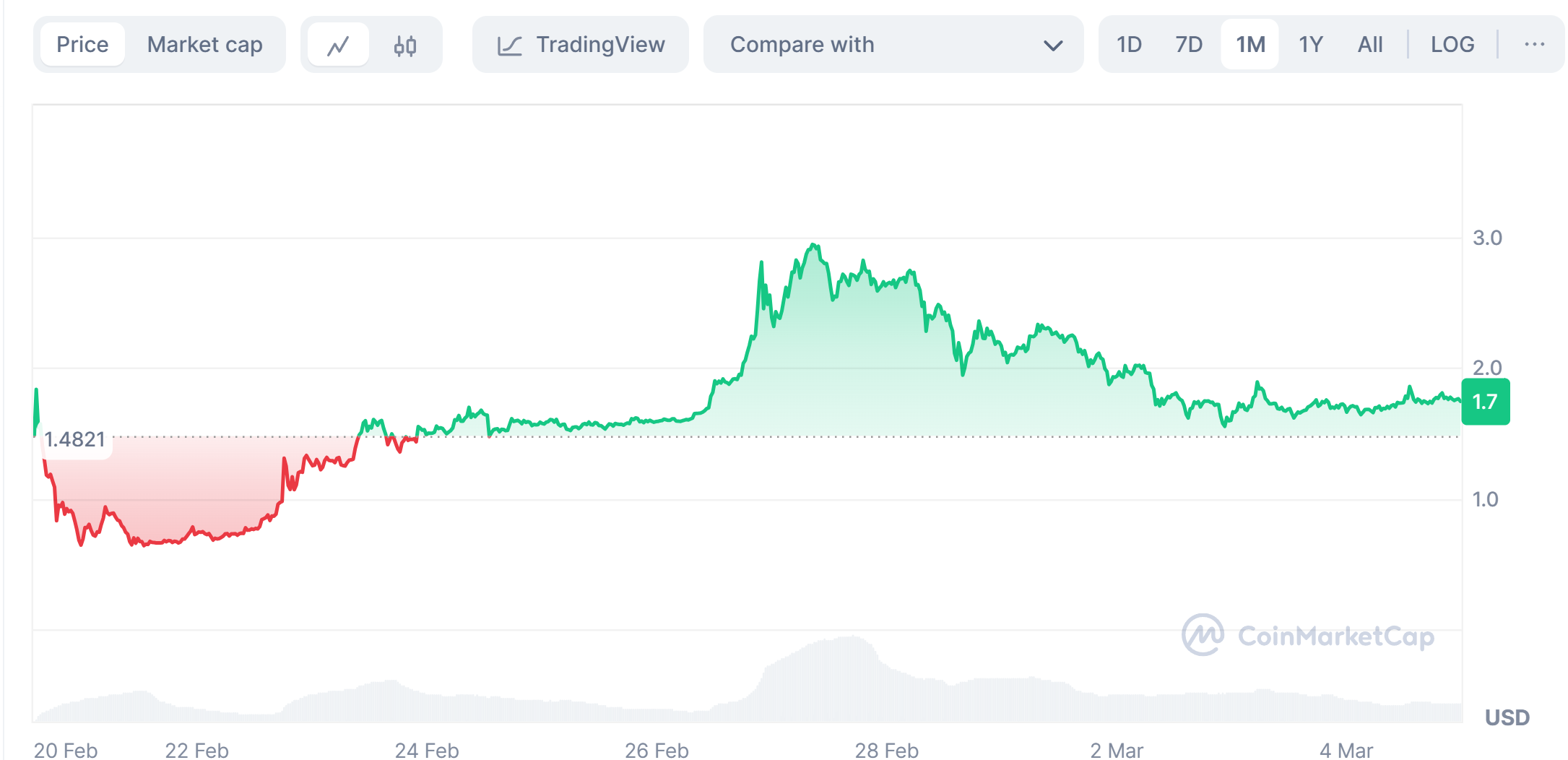
Pi Coin Price Since Launch on 20 Feb 2025
Just after launch, Pi Coin reached a high of $3 within a week. Since then, it has corrected along with the crypto markets to a bottom of $1.5 a couple of days ago.
At press time, Pi has formed a rounding bottom chart pattern, which could see its price bounce back to $3 levels within Q2 of this year.
In the long-term we do not see a steep increase in Pi’s price because almost 94% of its token supply is still not in circulation. Should the team decide to conduct bigger token unlocks and migrations in the future, it would pin down the price of Pi.
Optimistically, we would aim for a price target of $5 in Pi for 2025 and $15 to $30 by 2030.
Strong Fundamentals and Well-Designed Tokenomics
Pi Network has developed a very strong community and a well-established ecosystem over the last 6 years, making it one of the most community-oriented projects in crypto.
At present, Pi’s socials show that it has 2.2 million followers on Instagram, 3.9 million subscribers on X and 1.5 million on YouTube.
Pi Coin could be a future addition to the US National Digital Assets Stockpile because it was created by two stanford graduates Dr. Nicolas Kokkalis and Dr. Chengdiao Fan, in the USA.
Besides community and the Trump effect, what makes Pi a strong crypto is its controlled tokenomics. The unique KYC system at Pi helps control token supply despite having 100 billion tokens. Otherwise, it would have met the same fate as Dogs Token, which went crashing down after launch.
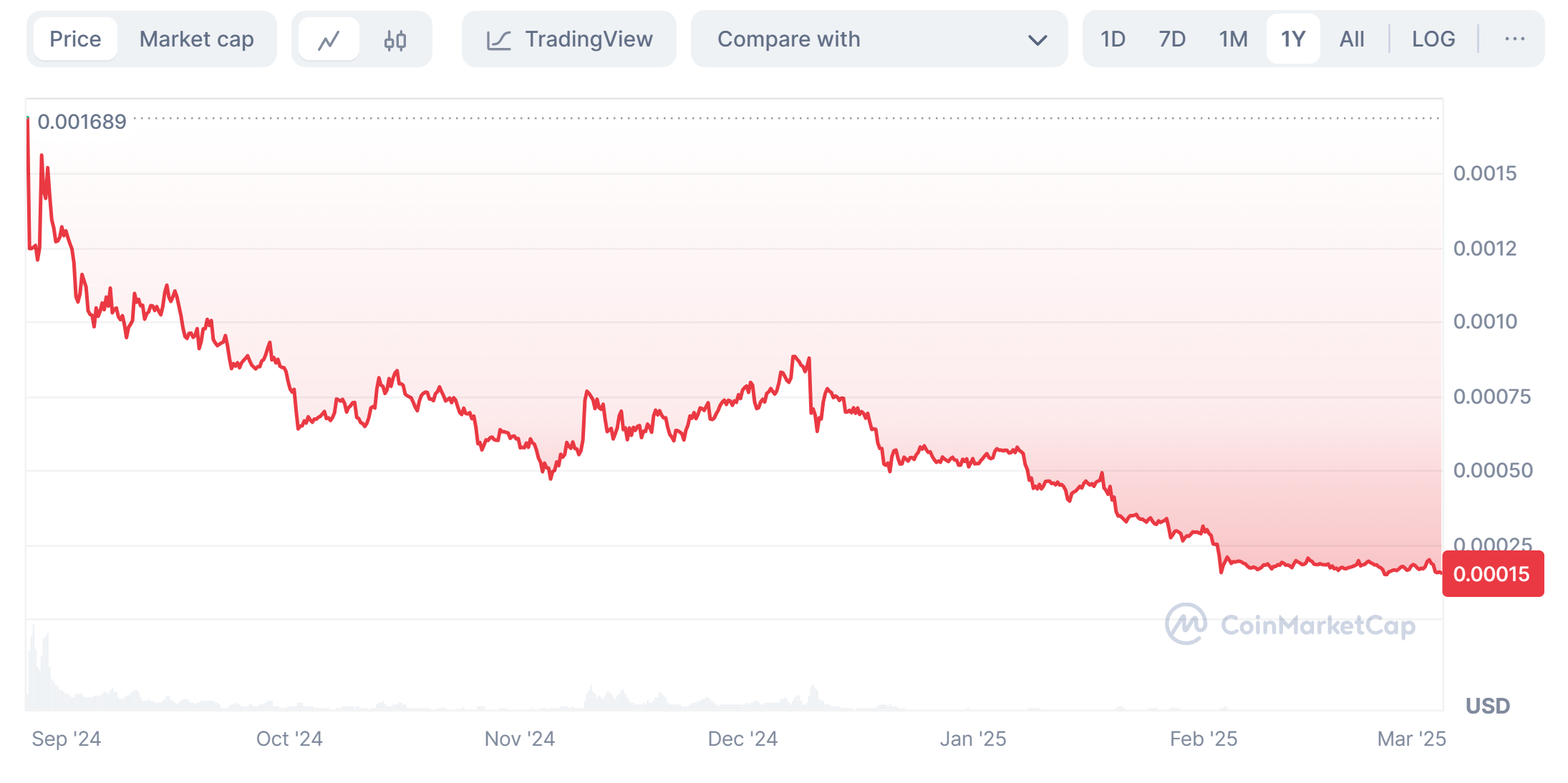
DOGS Token Crashed After Launch
In the future, we could see Pi offering general usage as an efficient medium for the transfer of funds.
Some Concerns Around the Pi Network
Despite the enthusiasm in the crypto markets, we have found users showing several concerns around Pi Network’s privacy policy.
On Pi, there is a unique KYC method that is mandatory for migrating your tokens to the mainnet. However, this KYC is often intrusive and asks users about confidential information such as social security and even pension records.
Another trouble that users constantly face is increasing their social circle, which is a mandatory referral if they wish to migrate their tokens to the mainnet. To be able to unlock all your mined Pi Coins, users need to ensure that the maximum number of people in their social circle have done KYC.
Though KYC is sometimes necessary to curb illegal activities, yet, it is an invasive method and violates the core principle of anonymity in blockchain technology. This is also the reason why even large blockchains like Bitcoin and Ethereum have never mandated KYC for their users.
Disclaimer: This article is intended solely for informational purposes and should not be construed as financial advice. Investing in cryptocurrencies involves substantial risk, including the possible loss of your capital. Readers are encouraged to perform their own research and seek guidance from a licensed financial advisor before making any investment decisions. Voice of Crypto does not endorse or promote any specific cryptocurrency, investment product, or trading strategy mentioned in this article.


